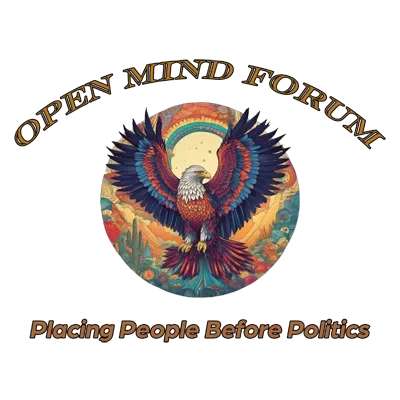
Masking Bias with Social Virtue and Denial
Introduction: Neo-Liberal Approach to Civil Racism a Double Standard
Neo-Liberal Approach to Civil Racism uses seemingly inclusive language to mask persistent societal biases. Philosopher Slavoj Žižek, in Living in the End Times, reveals how Neo-liberal societies claim to have moved “beyond” racism, allowing it to persist by denying its presence. This concept introduces “civil racism,” where societies point to obvious examples of racism in others while ignoring their own embedded biases. Civil racism thus emerges as a subtle yet pervasive issue, operating under the guise of civility and inclusion.
The Neo-Liberal Fantasy of a “Post-Racist” Society
The Neo-Liberal Approach to Civil Racism insists that racism is a relic of the past, supposedly addressed through anti-discrimination laws and progressive policies. In 2013, the U.S. Supreme Court reinforced this view in Shelby County v. Holder, which dismantled federal oversight of states with

histories of voter discrimination (ACLU, 2013). This ruling led states to enact laws that disproportionately affected minority voters, permitting civil racism to flourish within the bounds of legality. Neo-liberals often deflect criticism by blaming “individual racists” rather than acknowledging systemic biases in their institutions, fostering an illusion of post-racism.
Neo-Liberal Approach to Civil Racism as a Shield for Systemic Prejudice
Civil racism enables implicit biases to thrive, shielded by a supposed moral superiority. France’s response to the 2002 presidential run of openly racist candidate Jean-Marie Le Pen offers an illustrative example. The nation united against Le Pen in a public display of anti-racism, yet took little action to address the systemic issues affecting minority communities, like housing and employment discrimination (Pace, 2002). Here, anti-racist gestures served to mask deeper societal inequities, embodying civil racism. Denouncing obvious forms of racism enables societies to ignore subtler, yet equally harmful, biases.
Neo-Liberal Denial and the Idealized Self-Image
The Neo-Liberal Approach to Civil Racism projects blame for racism onto visible scapegoats, allowing the privileged to believe they are “beyond racism.” Neo-liberal discourse frames systemic biases as obsolete, rejecting the lived realities of marginalized groups. Žižek describes how this mindset localizes racism “in the body of the racist,” enabling Neo-liberals to present themselves as multicultural idealists who ignore structural biases as isolated anomalies (Žižek, 2010). This self-perception fosters a troubling double standard: Neo-liberals can ignore systemic biases by attributing them solely to individual actions, rather than institutional failures.
Symbolic Acts Instead of Systemic Change: Neo-Liberal Approach to Civil Racism
Instead of meaningful reform, the Neo-Liberal Approach to Civil Racism emphasizes symbolic gestures. Neo-liberal societies often perform inclusivity, like promoting diverse hiring, without addressing the real barriers minorities face in advancing their careers. Corporations, for instance, often celebrate hiring numbers without ensuring fair promotion opportunities, masking inequity with publicized “diversity” campaigns. Studies show that while diverse hires have increased, racial pay gaps remain significant, revealing a tokenistic approach that distracts from entrenched workplace inequalities (Wingfield & Chavez, 2020).
Is There Any Difference Between Democrats and Republicans Anymore?
Both Democrats and Republicans rely on the Neo-Liberal Approach to Civil Racism, condemning overtly racist acts without tackling underlying structural issues. Democrats may critique conservative policies while neglecting voting rights reform or policing reform, opting instead for symbolic condemnation. Republicans often endorse “color-blind” policies that ignore existing inequalities. The reluctance of both parties to address civil racism through substantive reform illustrates the superficiality of their ideological differences, allowing structural racism to persist unchallenged.
International Examples of Neo-Liberal Civil Racism
The Neo-Liberal Approach to Civil Racism is not exclusive to the United States. The United Kingdom’s “Prevent” strategy, for instance, targeted Muslim communities under the pretext of promoting “community cohesion.” Although promoted as a tolerance-driven initiative, Prevent primarily monitors and stigmatizes Muslims, casting them as “risky others” (Qureshi, 2018). Similarly, France’s burkini ban, framed as a defense of secularism, disproportionately affects Muslim women, asserting “universal” values that alienate minorities (Tarlo, 2017). Both cases reflect how Neo-liberalism enforces systemic biases while projecting inclusivity.
Conclusion: The Systemic Nature of Civil Racism in Neo-Liberalism
The Neo-Liberal Approach to Civil Racism perpetuates structural inequities under a façade of progress. Žižek’s work highlights the paradox of condemning visible racism while enabling latent forms to flourish. Addressing civil racism requires moving beyond symbolic gestures, implementing policies that challenge systemic biases, and dismantling frameworks that allow these biases to persist unaddressed.
Sources Cited
– ACLU. (2013). Shelby County v. Holder: The Decision and Its Implications.
– Pace, E. (2002). France and Jean-Marie Le Pen: A Nation Divided.
– Qureshi, K. (2018). Community Surveillance in the U.K.’s “Prevent” Strategy. Journal of Racial Studies, 5(3), 231-243.
– Tarlo, E. (2017). Muslim Identity in Secular France: The Burkini Ban Controversy. Oxford Press.
– Wingfield, A. H., & Chavez, R. (2020). Race, Gender, and Workplace Inequality in Corporate America. Sociology Today, 12(4), 47-59.
– Žižek, S. (2010). Living in the End Times. Verso.
Suggestions for Further Reading
- Žižek, S. (Living in the End Times) – Analyzes how modern capitalism hides societal inequities under neoliberal virtues.
- Bonilla-Silva, E. (Racism Without Racists) – Explores how “color-blind” ideology allows racism to persist unchallenged in society.
- Goldberg, D. T. (The Threat of Race) – Examines how modern global policies shape racial hierarchies.
- Wingfield, A. H. (Flatlining) – Details how corporate diversity initiatives often overlook structural barriers.
- Qureshi, K. (Community Surveillance and Multiculturalism) – Critiques how surveillance policies mask civil racism in Neo-liberal states.
- Derrida, J. (Double-Bind: Rhetoric of Tolerance) – Discusses tolerance in Neo-liberalism as a rhetorical device that avoids addressing inequality.
- Tarlo, E. (Visibly Muslim) – Analyzes the challenges faced by Muslims under Western secular policies.
- Harris, C. (Whiteness as Property) – Examines the legal codification of racial biases in Western law.
- Pace, E. (France and Le Pen) – Provides insight into how French secularism often excludes minority communities.
Disclaimer: The images and videos in this post are AI-generated creations, intended purely for illustrative and conceptual purposes. They are not real-life representations and should not be interpreted as such. Their sole purpose is to offer a visual means of exploring the topics discussed in this post.




